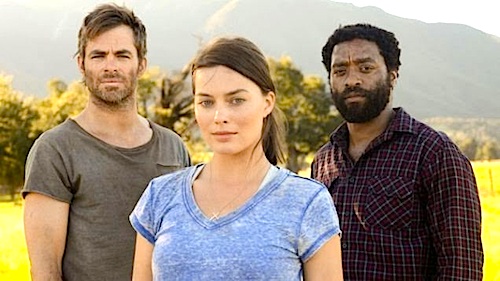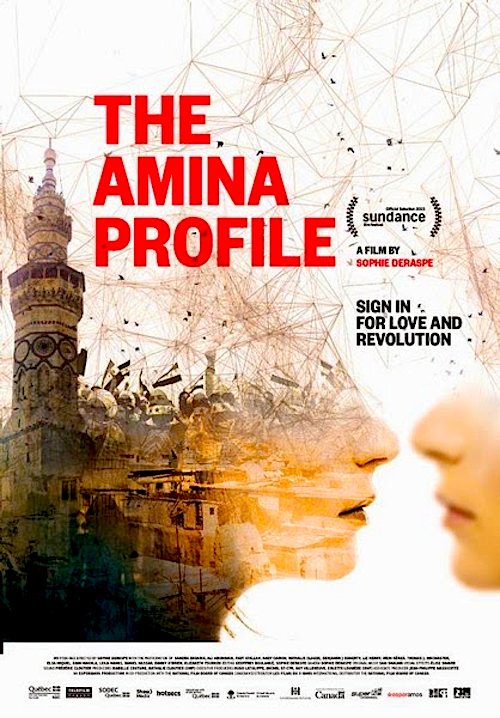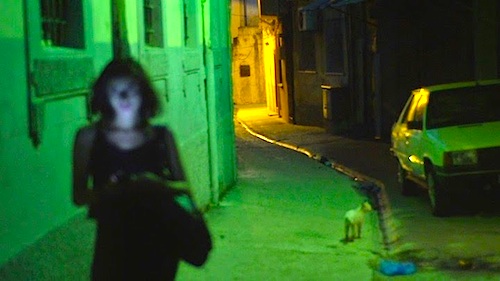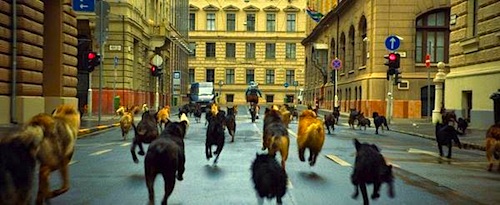By Joe Benel. Lets face it, the future surely won’t be utopian, like in Star Trek, and most likely won’t be dystopian as in 1984 (although some days you have to wonder). Chances are, it will just sort of be topian, as it is now. However, Craig Zobel puts his chips on a radioactive post-apocalyptic future in his adaptation of Robert C. O’Brien’s young adult novel Z for Zachariah (clip above), which screens during the 2015 Sundance Film Festival.
One by one, Ann Burden’s family members left the safety of their self-contained valley looking for survivors, eventually leaving her with only the family dog for company. One day, Loomis, a scientist in a heavy radiation suit staggers into the sheltered ecosystem. However, just when he thinks he has found an unspoiled Eden, Loomis contaminates himself in a stream fed from an outside source. With the help of his meds, Burden slowly nurses him back to health. He appears to be the companion she has long prayed for, but his scientific materialism is somewhat at odds with her rugged Christian faith.
Nevertheless, mutual attraction steadily percolates between them, until it is interrupted by the arrival of another stranger. On paper, Caleb the former coalminer would be a better match for Burden because of their shared values, but she is surprisingly frustrated by Loomis’s passive reaction to his potential rival. At least an additional set of hands can help build Loomis’s proposed hydroelectric generator, but then what?
Perversely, screenwriter Nissar Modi removes everything that was distinctive and challenging about the novel written by the Mrs. Frisbee and the Rats of NIMH author Robert Leslie Conley under the O’Brien pseudonym, replacing it with a shopworn post-apocalyptic love triangle. Since Caleb was Modi’s creation, he could have at least made him more interesting. However, the watering down of the pitched struggle between Burden’s traditional values and Loomis’s scientific fanaticism is real loss. Frankly, one would have thought that was what attracted Compliance helmer Zobel to the project in the first place.

Still, Z is notable in one respect. It makes a major career statement for Margot Robbie, in a radical departure from her sexpot roles. It is a sensitive performance that presents Burden’s faith in a respectful manner, while also convincingly portraying the slow awakening of her long dormant sexuality. As usual, Chiwetel Ejiofor exudes wounded dignity as the new and improved Loomis, but evidently Chris Pine has seen as many apocalyptic films as the rest of us have, because he just looks bored out of his mind as Caleb.
If you are not going to preserve its themes, why pretend to adapt a book in the first place? Obviously, Modi’s adaptation is an attempt to cash in on the craze for dark futuristic YA projects, but the final product is guaranteed to disappoint fans of the novel (and the earlier 1984 BBC adaptation). As a point of comparison, J.C. Schroder’s Forever’s End has a similar feel, but is far more compelling. Only recommended for fans of Robbie who want to see her take her craft to the next level, Z for Zachariah screens again tonight (1/25) at the Sundance Mountain Resort, tomorrow (1/26), Thursday (1/29), and Saturday (1/31) in Park City, and Friday (1/30) in Salt Lake, as part of this year’s Sundance.
LFM GRADE: C-
Posted on January 25th, 2015 at 2:58pm.





